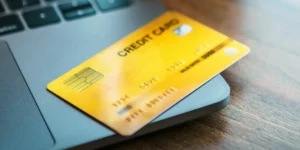It was a typical Wednesday night when my life took an unexpected turn. I was lounging on the couch, watching reruns and scrolling through my phone, when a bank alert jolted me out of my relaxed state. My heart raced as I saw the notification: unusual activity on my credit card. I quickly opened the app, only to be confronted by a series of alarming transactions. There was a $200 charge at a gaming site I’d never heard of, a $50 charge at a gas station miles away, and the most shocking of all—a $1,000 flight to Paris.
Paris? I’d never even been there, let alone booked a flight. I was stunned, trying to piece together what had happened. Had I lost my card? Was I hacked? My mind spun with the implications. I knew I had to act fast, so I dialed my bank’s customer service, steeling myself for a frustrating process.
After navigating an automated labyrinth and enduring interminable hold music, I finally spoke with Jenna from the fraud department. I recounted my story, my voice trembling with urgency. Jenna’s response was calm but frustratingly vague. She assured me that an investigation would be launched but warned me that it could take time. “Keep an eye on your account,” she advised, “and let us know if anything else seems suspicious.”

Feeling a mix of relief and irritation, I hung up. The flight to Paris had been the biggest concern, so I tried to cancel it myself. To my surprise, I succeeded in canceling the ticket. It was a small victory in the midst of the chaos, but it didn’t ease my anxiety.
The next day, I was on edge, constantly checking my account for further fraudulent activity. My phone buzzed incessantly, each notification sending a spike of panic through me. Then, two days later, an email arrived with the subject line: “Flight to Paris.” My heart skipped a beat as I opened it, fearing the worst.
The email was from someone named Marc, and it read:
*Hi Kyle, I’m writing to you because my flight to Paris was suddenly canceled, and the airline said it was at your request. This trip is really important to me; it’s for a family event. Can you please explain what happened?*
The email left me reeling. I had expected to encounter scammers or automated responses, not a frustrated traveler. My initial anger quickly shifted to an unexpected realization. I now had a lead on the scammer and a chance to set things right.
I went to the local police station the next morning, where the atmosphere was cold and unwelcoming. At the front desk, I explained my situation to a weary officer who directed me to Detective James, a specialist in cybercrimes. Detective James was a no-nonsense kind of guy, but his kind demeanor was reassuring.
After laying out the details of my case and showing him Marc’s email, Detective James explained that scammers often use stolen credit cards to buy tickets, which they then sell at a discount. When the original cardholder disputes the charge, the tickets get canceled, leaving innocent buyers like Marc in the lurch.
“We’ll file a report,” Detective James said. “Your bank will need this for their investigation. As for Marc, you should explain everything to him in detail. He’s an innocent victim here.”
With a clearer understanding, I went home and drafted a comprehensive email to Marc. I apologized profusely and explained the scam, hoping to ease his frustration. Marc’s response came quickly:
*Thanks for explaining, Kyle. This whole situation is such a nightmare. I had no idea about these scams. It’s good to know you’re not some random jerk canceling my flight for kicks.*
Marc’s message was a relief, and our correspondence turned into a supportive exchange. A few days later, Marc suggested we meet up to discuss the situation and perhaps brainstorm ways to prevent similar scams in the future. I agreed, and we arranged to meet at a local café.
When we met, Marc was a tall, friendly guy with an easygoing demeanor. We hit it off immediately, sharing stories and finding common ground. The frustration of the scam gave way to a genuine connection. Our meetings became regular, and we built a friendship over coffee and conversations about our lives, families, and interests.
Years later, Marc and I were sitting at a dinner table with our families, reflecting on how the scam that had initially seemed so devastating had led to something wonderful. Our children played together, and our spouses chatted comfortably.
“Can you believe it?” Marc said, raising his glass. “If it weren’t for that scam, we wouldn’t be here right now.”
I clinked my glass against his, smiling. “To the scammers,” I said with a grin. “Unintentional matchmakers.”
Everyone laughed, and I felt a deep sense of gratitude. What began as a nightmare had transformed into one of the most meaningful friendships I’ve ever had. Life had a strange way of turning things around, and this was one of those moments where something unexpected became a blessing.

